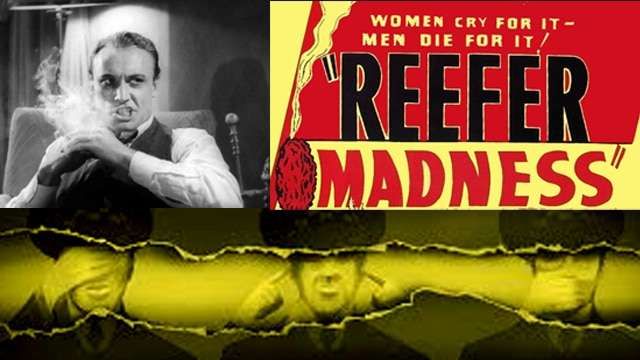Drug Warrior Mentality Meets Hemp
The Cost of Outdated Perceptions and Misguided Enforcement
Recent statements by Collin County law enforcement officials regarding THCa products derived from hemp reveal the lingering influence of an outdated “drug warrior” mentality – a relic of the War on Drugs era that continues to skew perceptions of hemp and its derivatives. This clash between old-school thinking and new legal realities has all the hallmarks of a classic moral panic, with devastating consequences for innocent business owners and their communities.
The Shadows of the War on Drugs
For decades, law enforcement operated under a drug warrior worldview that often led to oversimplified, “us vs. them” thinking. This mentality persists even as laws and scientific understanding evolve, distorting the reality of hemp-derived products. Complex issues are reduced to black-and-white thinking, seen in the blanket categorization of THCa products as “illegal narcotics,” despite their legal status under both federal and Texas law when derived from compliant hemp. Years of viewing all cannabis-related substances as inherently dangerous leads to automatic assumptions about new products, unsupported by current evidence.
The nuanced legal landscape, with careful delineations between hemp and marijuana based on THC content, requires a more sophisticated understanding that old-school drug warrior thinking struggles to accommodate. Amplifying potential dangers to create urgency was a hallmark of drug war rhetoric. This is evident in the inflammatory language used to describe THCa products and their effects, often without solid evidence. The instinct to respond with increased enforcement and criminalization overlooks more effective harm reduction strategies and the potential benefits of regulation over prohibition.

Moral Panic in Action
These biases fuel what sociologists term a “moral panic” – an exaggerated societal reaction to a perceived threat. Key elements of this panic are evident in the officials’ statements. Claims of THC percentages as high as 78% likely stem from flawed testing methods. Accurate testing of THCa requires high-performance liquid chromatography with mass spectrometry (HPLC-MS), not the gas chromatography methods that can decarboxylate THCa during testing, inflating THC percentages.
Dire warnings about future harm, particularly to youth, ignore the industry’s age verification efforts and lack supporting evidence. Terms like “illegal narcotics” and comparisons to dangerous drugs like K2 and opioids symbolically link legal hemp products to illicit substances. The hemp industry and consumers are portrayed as threatening “folk devils,” with loaded language implying intentional harm to youth.
A united front implies widespread agreement about the danger, despite significant legal and scientific disagreement. Calls for prohibition and strict enforcement appear disproportionate to any demonstrated harm from legal hemp products. The sudden intensity of concern, despite these products being on the market for years, reflects the volatile nature of moral panics.
This rhetoric eerily echoes the “Reefer Madness” era, when exaggerated claims about marijuana led to decades of harmful prohibition. Learning from history is crucial to avoid repeating such mistakes.
The Human Cost of Misguided Enforcement
The recent raids on hemp businesses in Collin County have inflicted significant harm on innocent business owners and their communities. These actions, based on misunderstandings of law and flawed testing methods, have far-reaching consequences that extend beyond mere financial losses.
When law enforcement wrongly raids a store, the impact on business owners is severe and multifaceted. Financial devastation can occur as seized inventory and cash potentially cripple a small business, leading to permanent closure. Even if charges are eventually dropped, the immediate loss of income can be insurmountable. The fear of prosecution looms large, even when owners have operated in good faith. Legal fees and the stress of potential criminal charges take a heavy toll.
Raids can tarnish a business’s reputation, leading to loss of customers and strained relationships with neighbors. The stigma associated with a police raid can linger long after the legal issues are resolved. The stress of legal troubles and financial insecurity can put immense pressure on family relationships, potentially leading to lasting damage.
Business owners often experience anxiety, depression, and PTSD-like symptoms in the aftermath of a raid (such is the case with Hunter Robinson who was raided in Navarro County). The sudden loss of security and stability can be profoundly traumatizing. These actions can shatter business owners’ trust in law enforcement and the legal system, leading to a sense of vulnerability and isolation.
This heavy-handed approach is particularly troubling given that shop owners rely on certificates of analysis from accredited laboratories to verify the legality of their products. These business owners do not deserve such overbearing treatment when they have taken reasonable steps to ensure compliance with the law.
Moving Beyond Panic
Recognizing these biases is crucial for developing effective, reality-based policies around hemp products. A new paradigm is needed that acknowledges the legal status of hemp and its derivatives, bases decisions on current scientific evidence, focuses on responsible regulation rather than blanket criminalization, recognizes the economic potential of the hemp industry, and prioritizes education and harm reduction over fear-mongering.

A more appropriate approach to addressing concerns about potentially controversial products would involve open dialogue between law enforcement, regulators, and business owners to clarify legal standards and expectations. Educational outreach to help businesses understand and comply with relevant laws and regulations is essential. Clear guidelines on product testing and documentation should be established to ensure consistency and reliability. A gradual enforcement approach that begins with warnings and opportunities for correction before resorting to raids and seizures would be more just and effective.
Industry Response and Action
The hemp industry recognizes the importance of addressing concerns and demonstrating a commitment to responsible practices. Actions are being taken on multiple fronts, including pursuing legal clarification through the courts, engaging with state lawmakers to develop clear, science-based regulations, and implementing industry self-regulation measures such as strict age-gating practices and standardized testing protocols.
The goal is to create a robust regulatory framework that ensures product safety and consumer protection while allowing the hemp industry to thrive. All stakeholders are invited to join in this effort to move beyond fear-based reactions and towards evidence-based policies that serve the public interest.
By adopting a more measured and collaborative approach, law enforcement can address legitimate concerns without inflicting unnecessary harm on law-abiding business owners and their communities. This would foster a climate of trust and cooperation, rather than fear and antagonism, ultimately serving the best interests of public safety and economic stability. It’s time for a new era of understanding and cooperation between law enforcement, the hemp industry, and the public they all serve.






